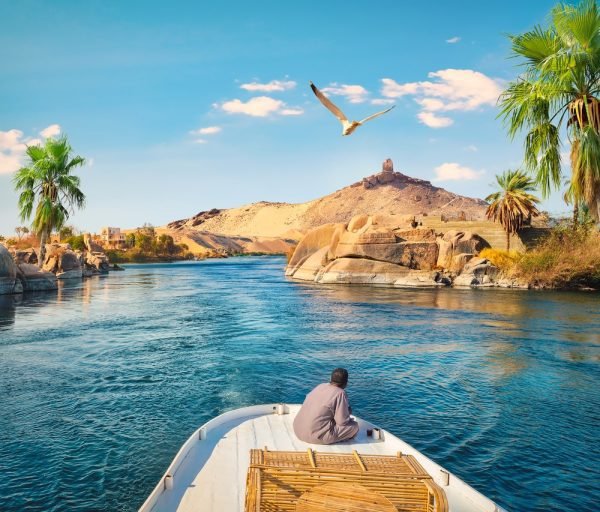Vacation in Egypt: Travel Warnings and Why It Is Safe
Introduction
Egypt, the land of pharaohs, ancient wonders, and breathtaking beaches, has always attracted travelers from around the world. With its rich history, impressive sights, and the warm hospitality of its people, Egypt is a dream destination for many. However, like any international destination, there are sometimes safety concerns and travel warnings. In this blog, we will not only explain the nature of these warnings but also highlight many reasons why Egypt remains a safe and worthwhile place to visit.
1. Understanding Travel Warnings: What They Mean and How to Interpret Them
Travel warnings are issued by governments to inform their citizens about potential dangers in certain countries or regions. These warnings may be due to political unrest, natural disasters, health risks, or security concerns. It is important to understand that these warnings do not necessarily mean that the entire country is unsafe. Often, travel warnings relate only to specific areas within a country rather than the whole nation.
Travel warnings for Egypt frequently focus on particular regions that might experience political tensions or other problems. However, many popular tourist destinations in Egypt—such as Cairo, Luxor, Aswan, and the Red Sea coastal resorts—are well-secured and remain safe for visitors. It is crucial to stay updated on current warnings but also consider the overall security situation, which is often more stable than perceived.
2. Popular and Safe Travel Destinations in Egypt: What You Should See
-
Cairo – Egypt’s bustling capital is a city of contrasts where ancient traditions meet modern life. Visitors can explore the Pyramids of Giza, the Egyptian Museum, and the lively Khan El-Khalili markets. Despite its size, tourist areas are well protected, with significant government efforts to ensure visitor safety.
-
Luxor – Known as the “largest open-air museum in the world,” Luxor is a must for history enthusiasts. Built on the ruins of ancient Thebes, it houses the magnificent Karnak Temple, the Valley of the Kings, and the grand Luxor Temple. Though travel warnings sometimes occur, Luxor remains a safe place frequented by thousands of tourists annually.
-
Aswan – A peaceful gem on the Nile, famous for its mild climate and beautiful setting. Aswan is ideal for travelers seeking relaxation. Visitors can explore Nubian culture, visit the Philae Temple, and enjoy traditional felucca boat rides on the Nile.
-
Hurghada and Sharm El Sheikh – These Red Sea resorts are world-renowned for their pristine beaches, crystal-clear waters, and spectacular diving spots. These areas are heavily tourism-focused with strong security measures. Despite general warnings, these regions remain safe and offer tourists a wide range of activities, from watersports to luxury resorts.
3. Practical Safety Tips for Travelers in Egypt
Although Egypt is safe for tourists, here are some general safety tips to make your trip even safer:
-
Travel in groups or with local guides: Organized tours not only enhance safety but also enrich your cultural and historical experience.
-
Avoid crowds and demonstrations: As in any country, stay clear of gatherings and political events to avoid unpredictable situations.
-
Use only registered taxis or official transport: This reduces the risk of scams and ensures you reach your destination safely.
-
Be cautious at night: Tourist areas like downtown Cairo or Red Sea beaches are generally safe, but always prefer well-lit, busy streets after dark.
4. Health Precautions: What You Need to Know
Health is another important factor to consider when traveling to Egypt. While Egypt has a decent healthcare system, keep in mind:
-
Vaccinations: Make sure you have all necessary vaccinations before travel, including hepatitis A and B, typhoid, and tetanus.
-
Sun and heat protection: Egypt can get very hot, especially in summer. Use sunscreen, wear hats, and stay well hydrated to prevent heat stroke and sunburn.
-
Hygiene: Drink only bottled water and avoid street food unless you are sure of its cleanliness. Diarrheal illnesses are common but avoidable with caution.
5. Cultural Sensitivity: Respecting Egyptian Culture
Egypt is a country with deep-rooted traditions and cultural norms. As a tourist, respecting these is essential to have positive experiences:
-
Clothing: Dress conservatively, especially in rural areas and when visiting religious sites. Men should wear long pants; women should cover shoulders and knees.
-
Respect religious sites: Mosques and churches are not only architectural treasures but places of worship. Be respectful, quiet, and follow local guides’ instructions.
-
Photography: Always ask permission before photographing people, especially in rural areas. Also, observe photography rules in museums and religious sites.
6. Staying Updated: How to Keep Informed
To stay informed about current developments, regularly check official travel advisories from your government. Useful apps can alert you to security changes.
Recommended resources:
-
German Foreign Office website for updated travel warnings and advice.
-
Travel safety apps like “Travel Safe” or “Safeture.”
7. Why Egypt Remains a Great Destination Despite Travel Warnings
Despite occasional travel warnings, Egypt remains one of the world’s most fascinating destinations. Its unique historical sites, vibrant culture, and warm hospitality make it a place not to miss.
Many tourists report positive experiences and feel safe throughout their visit. The Egyptian government continues to invest heavily in tourist safety, especially in highly frequented areas.
8. Planning Your Trip: Key Considerations
To ensure a smooth and safe journey, consider these points when planning your Egypt trip:
-
Travel insurance: Comprehensive coverage is essential for unexpected events such as illness, accidents, or cancellations.
-
Emergency contacts: Save contact details of your embassy, tour guides, and nearest hospital. Also, know the local emergency numbers.
-
Travel documents: Make copies of your documents and keep them separate from originals. Electronic copies on your phone or cloud storage are useful backups.
9. Conclusion: Egypt Is Safe – Trust the Facts
In summary, Egypt remains safe for tourists despite occasional warnings. With proper preparation, cultural understanding, and sensible caution, you can enjoy an unforgettable journey in this magnificent country. Egypt offers not only incredible history and culture but also secure and well-organized travel experiences that will delight every visitor.

